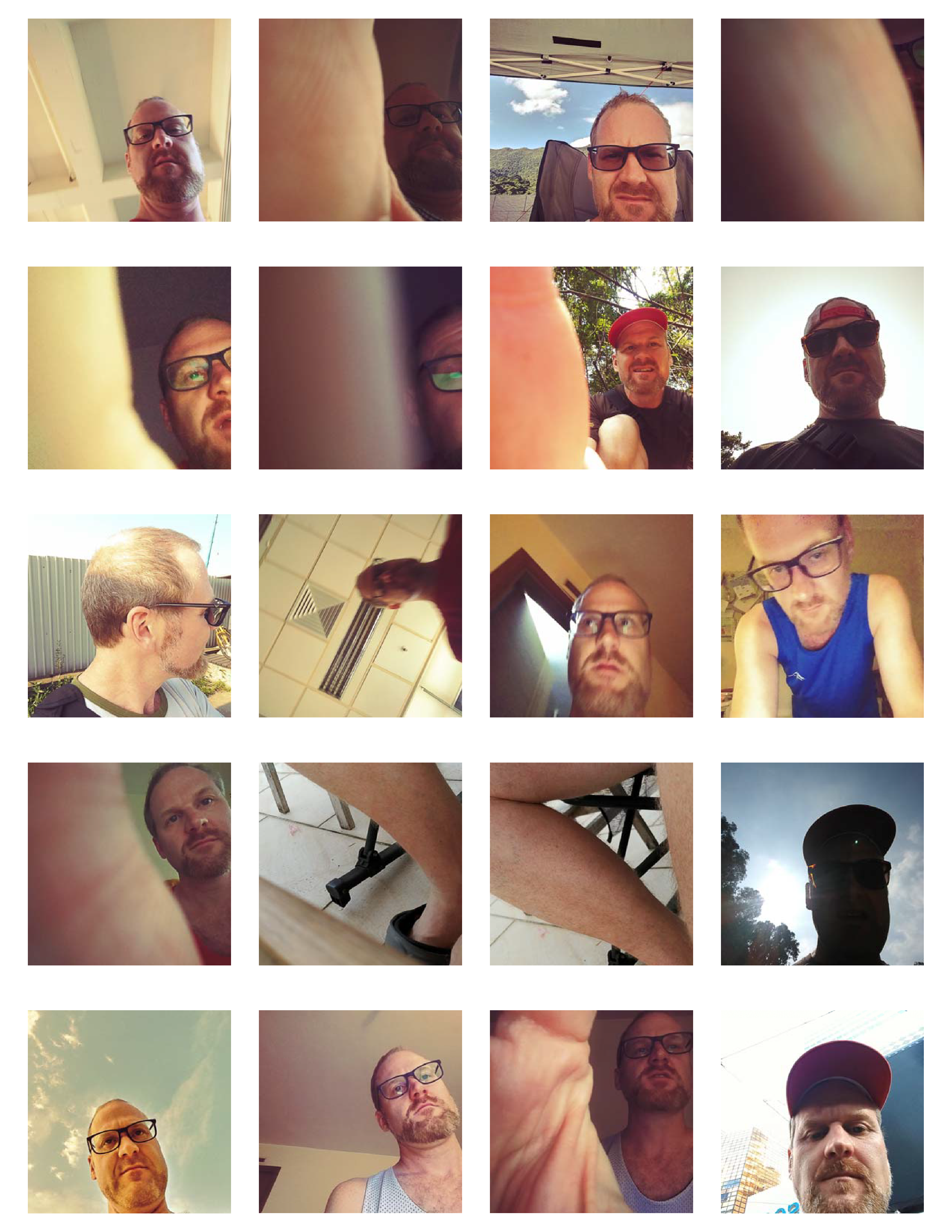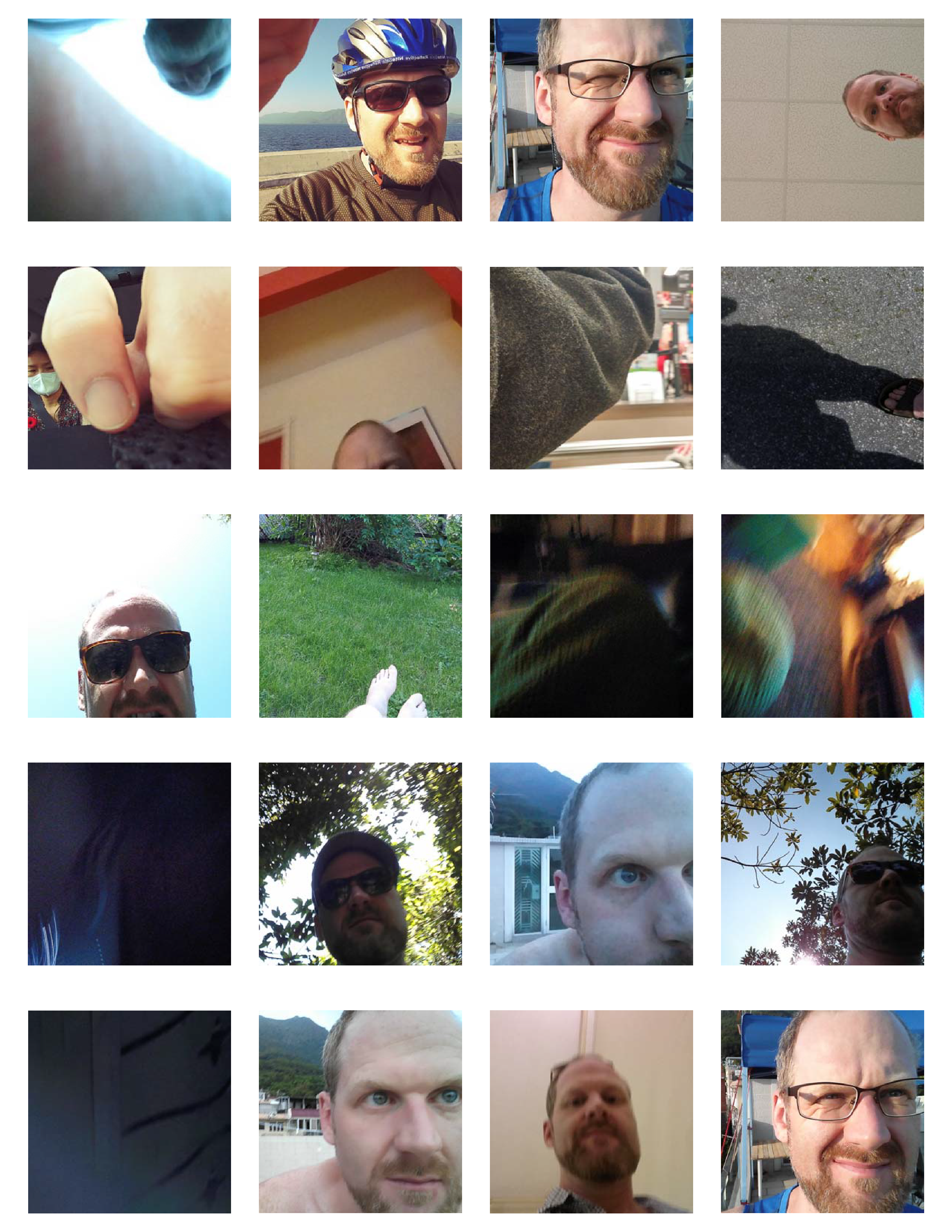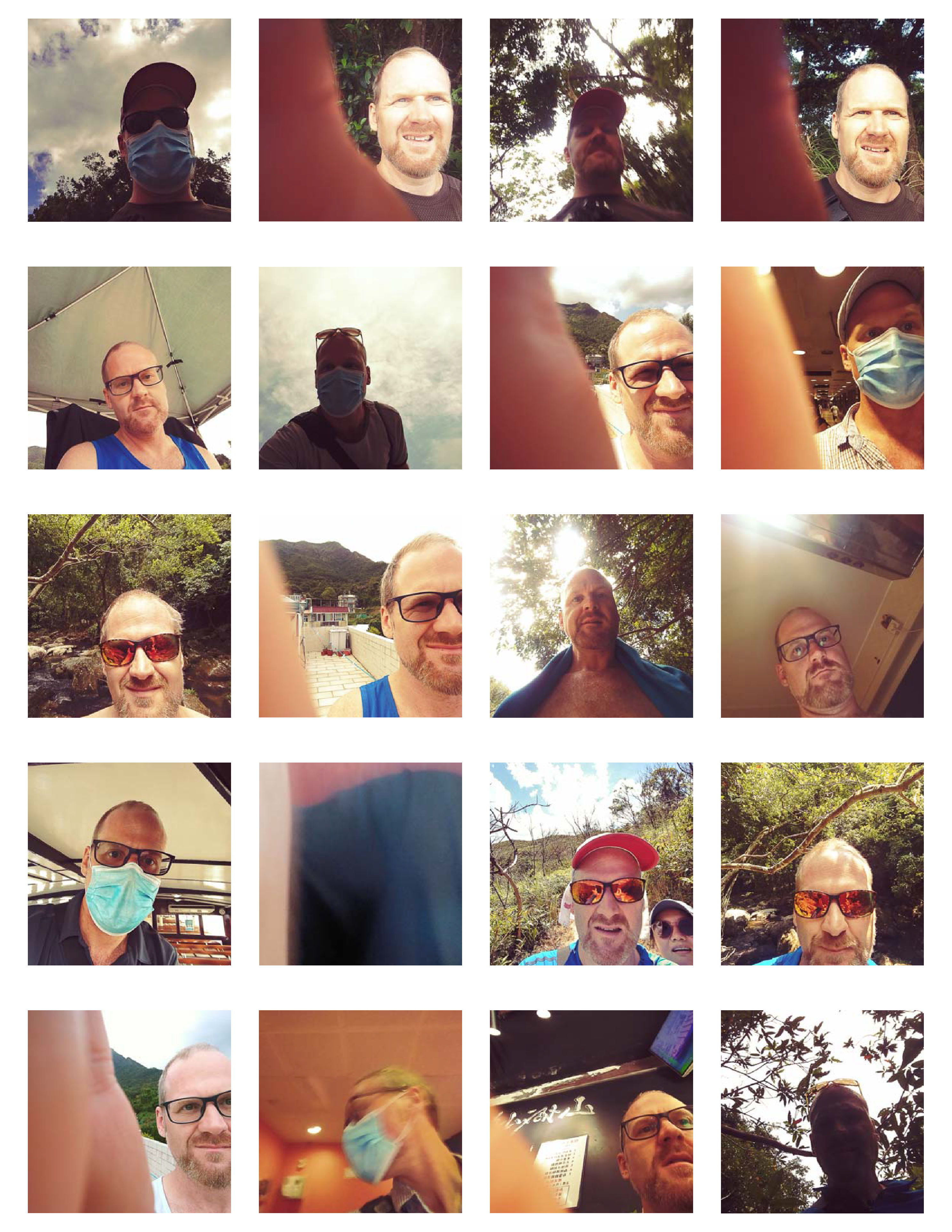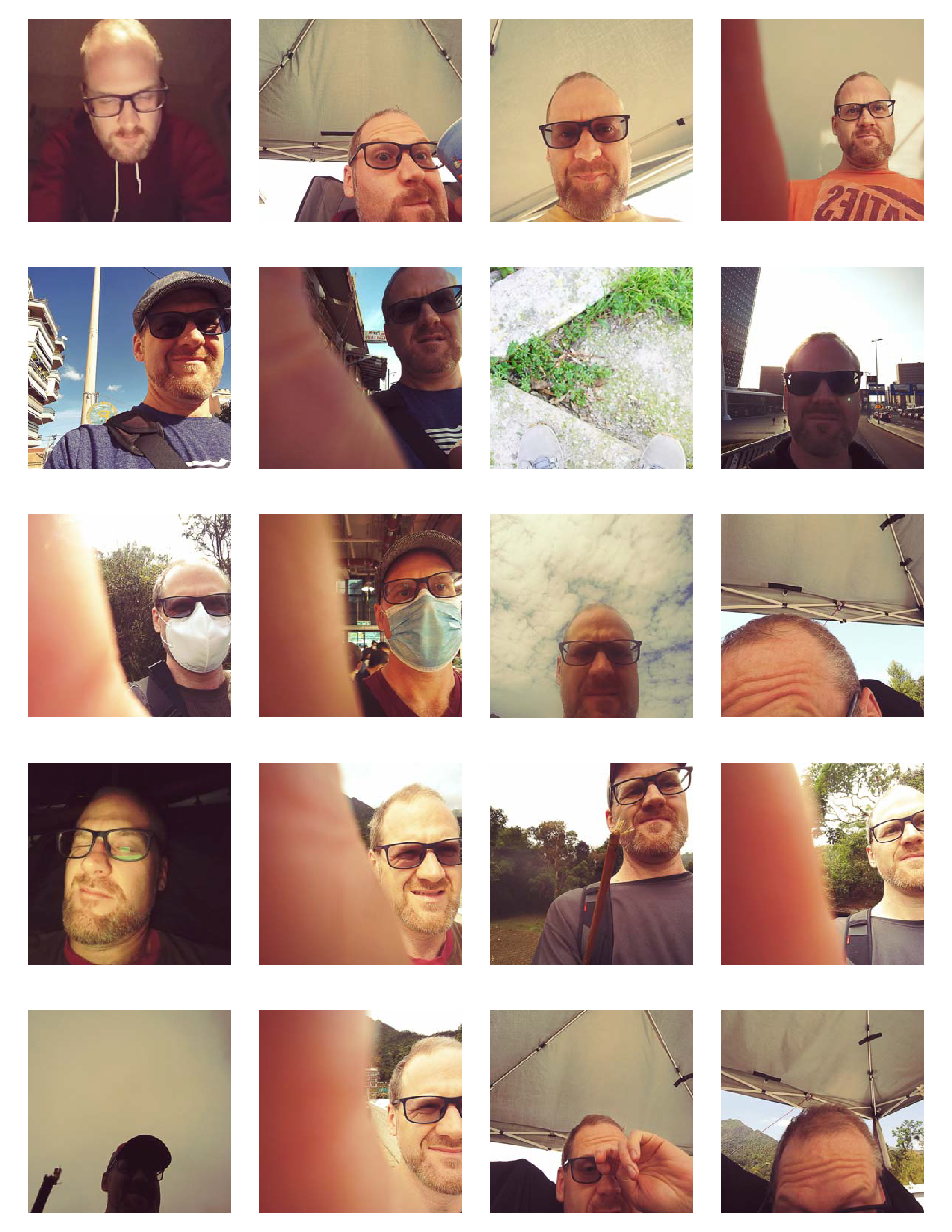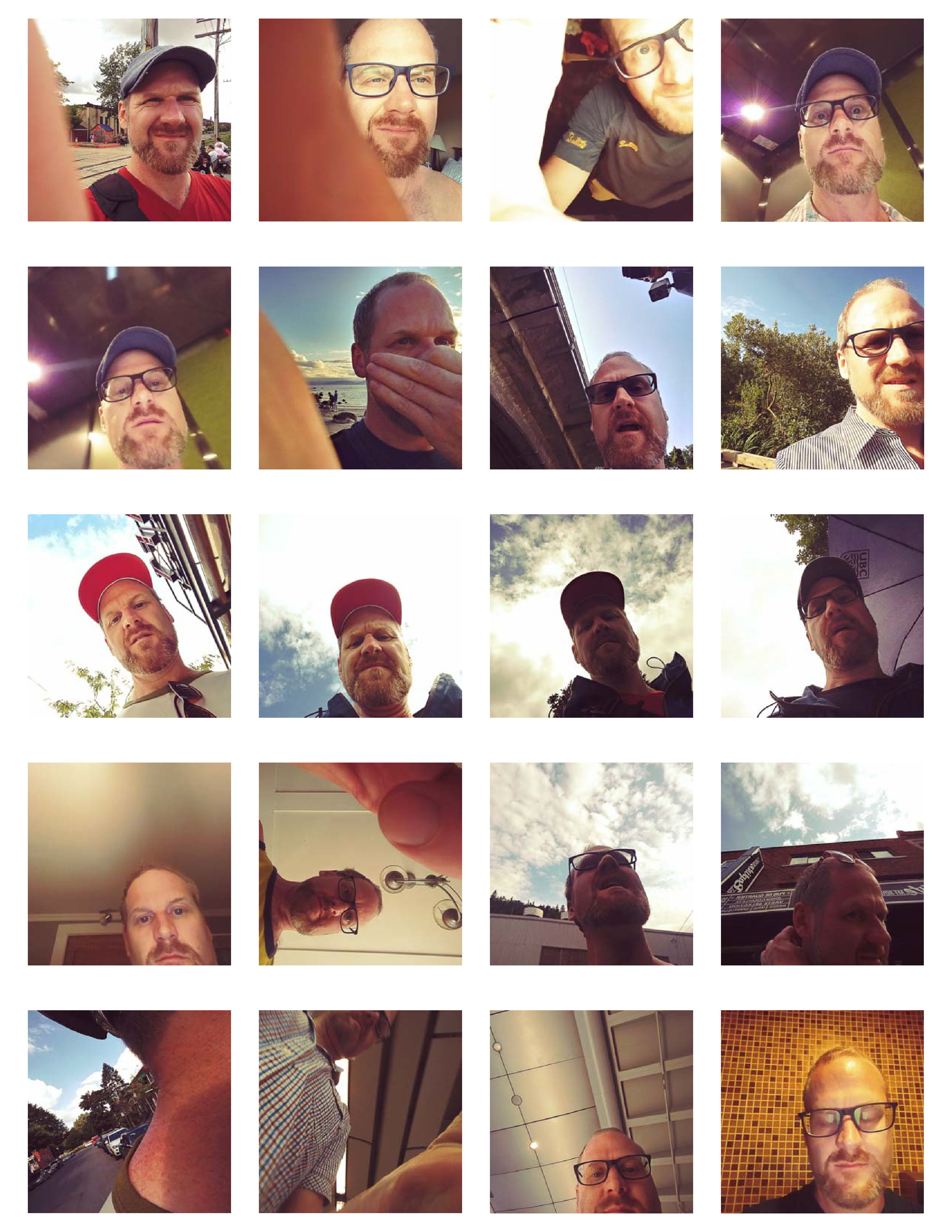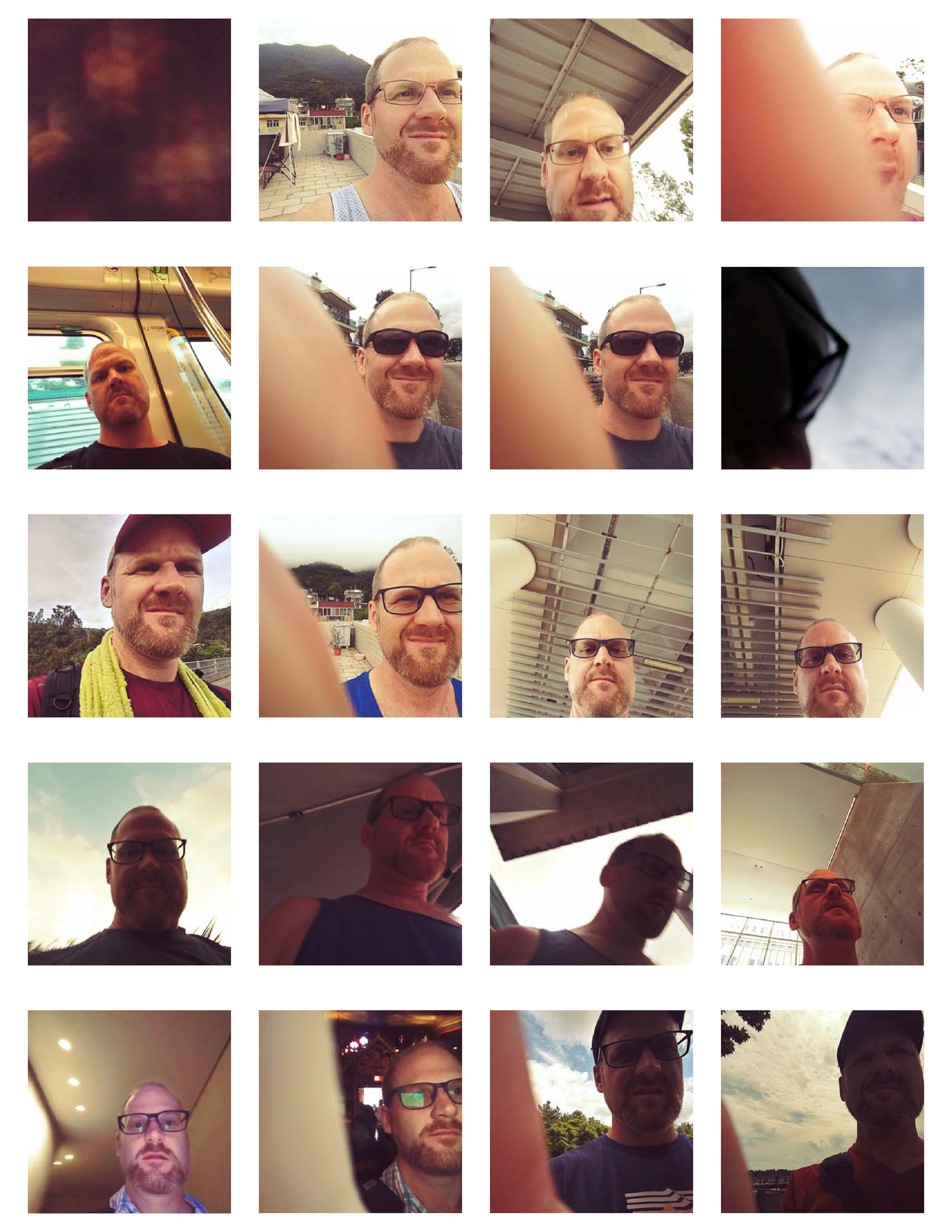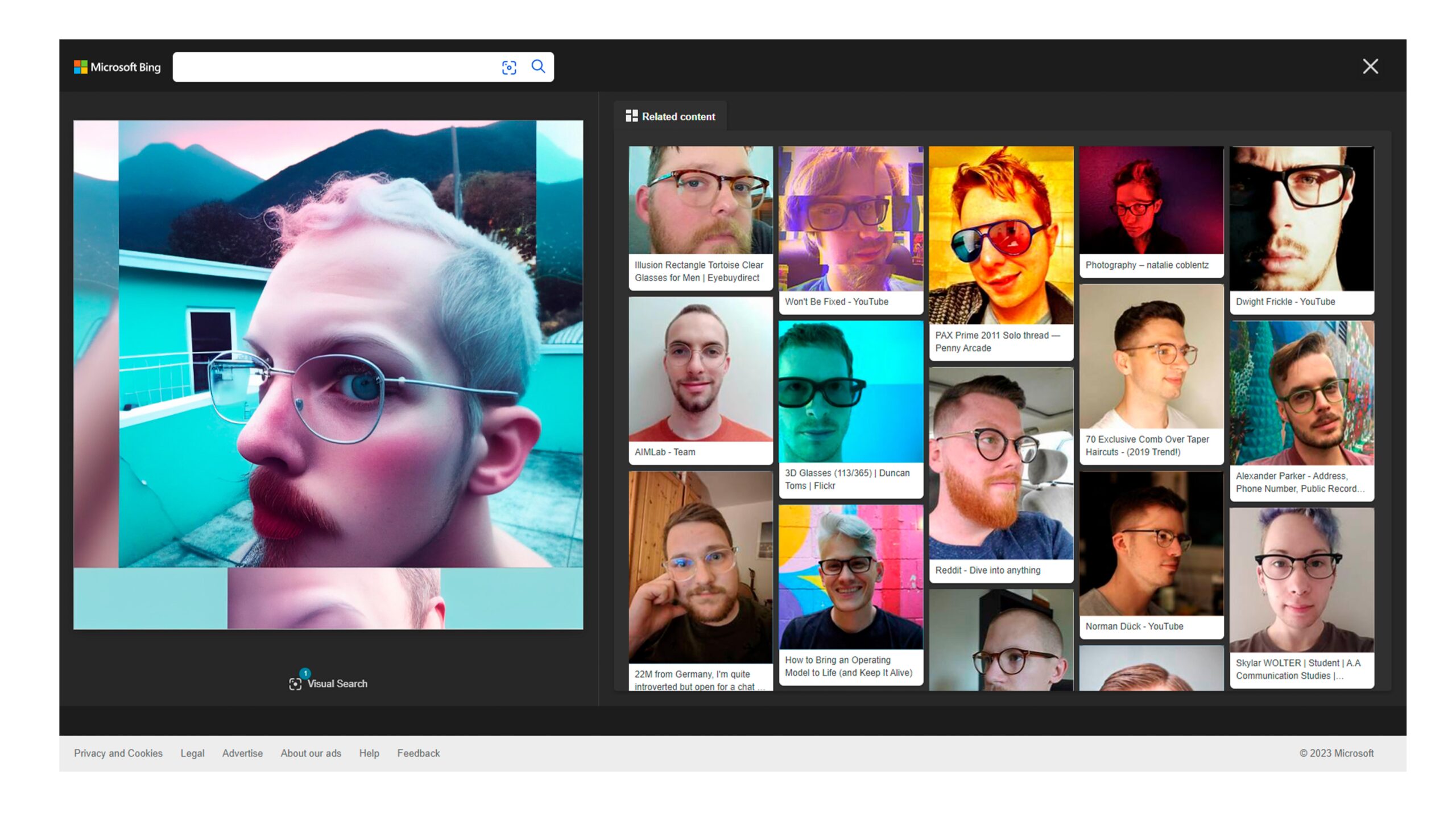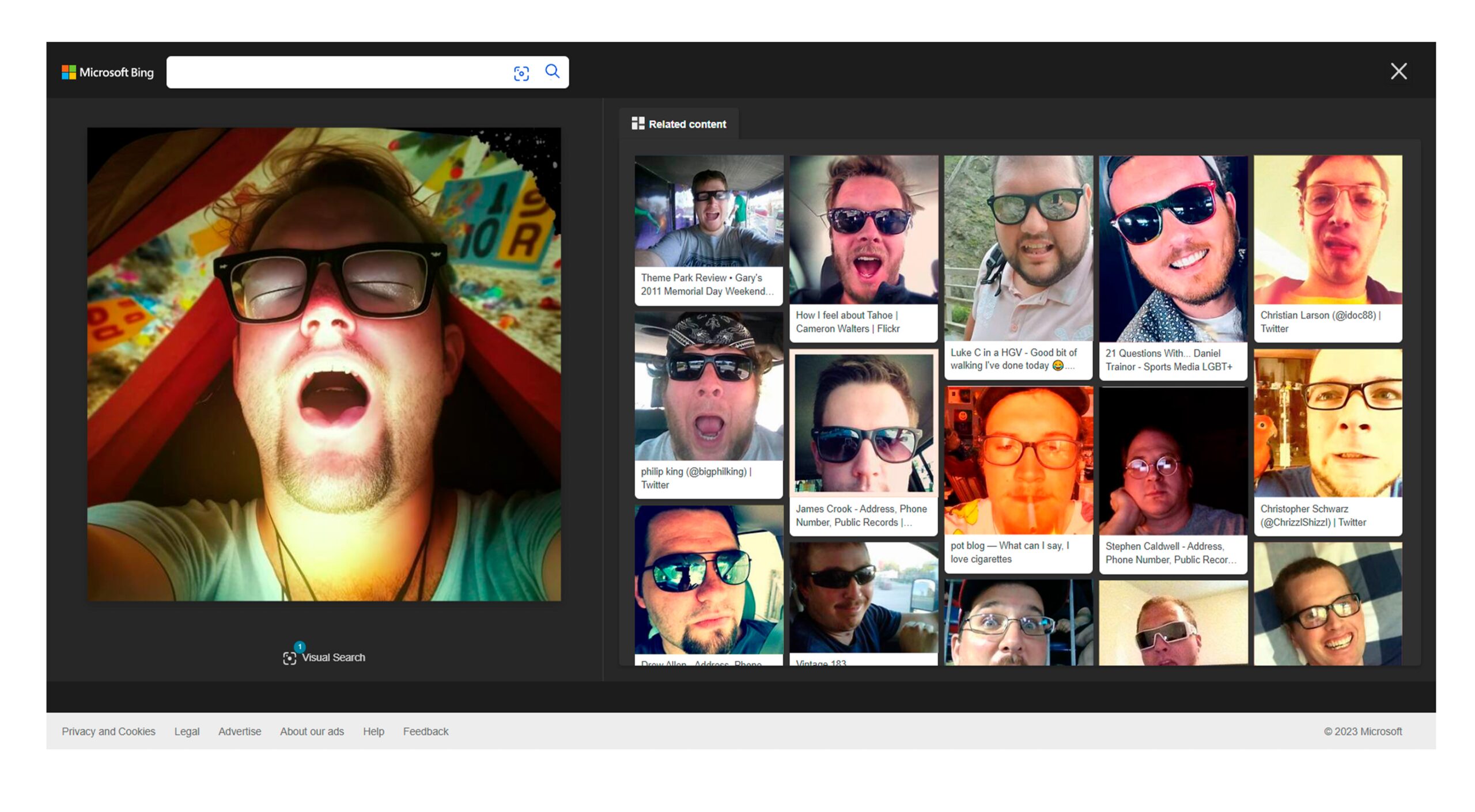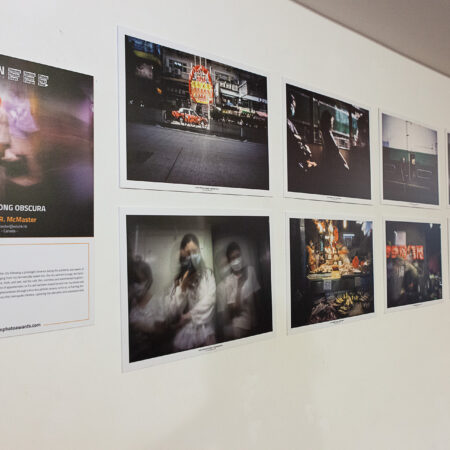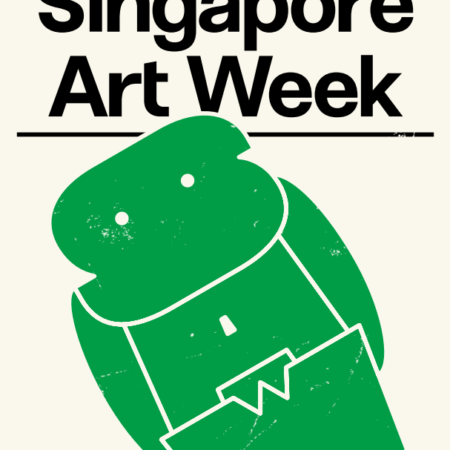Description
This series of accidental selfies flows across almost a decade of time and half a dozen smart phones. The images question how the contemporary smartphone’s camera app mediates identity though a transgressive act and views the mobile phone selfie as an artifact imbued with profound memento-like qualities. In our contemporary digital age, where personal photography has become ubiquitous, these images capture moments not merely as snapshots but as fragments of memory—a form of modern-day epicurean memento. This research thus traverses the intersection of photography, identity, and memory in the digital era.
In stark contrast to the carefully curated images we commonly share, these involuntary selfies capture moments of vulnerability and intimacy that typically remain concealed. They violate the socially codified practices of good lighting, timing, counterfeit smiles, superfluous filters, and attractive backdrops. Instead, they display an unplanned and uninitiated image that has not been negotiated, designed, or authorized.
Yet, these accidental selfies manifest as a form of resistance against the prevailing culture of self-promotion and superficiality that pervades social media. Unbound by the expectations set by camera apps, these images defy the notion that we must conform to a particular mold to be accepted or revered. They challenge the misguided belief that our self-worth can be quantified by the number of likes or followers we amass.
Situating this inquiry within the broader artistic landscape, it contextualizes the accidental smartphone selfie in relation to contemporary digital portraiture practices, exploring how these images align with or diverge from intentional selfies, glitch art, AI-generated portraits, and other innovative forms of digital self-expression. The series also draws upon Hito Steyerl’s thought-provoking concept of the ‘poor image.’ Steyerl’s idea sheds light on the proliferation of low-resolution, easily shareable digital images in the age of the internet and their implications for visual culture. By contemplating the ‘poor image’ in the context of accidental selfies, we can explore how these seemingly unrefined and spontaneous images relate to broader discourse on the democratization and devaluation of digital imagery.
As the project advances, it delves into the intricate relationship between humans and machines, relinquishing further control over these already precarious images. Using AI and popular Instagram hashtags, it transforms accidental selfies to align with online trends. Reverse image searches then unveil the sources influencing these AI alterations, illuminating their origins. This multifaceted exploration invites reflection on the interplay of chance, spontaneity, authenticity, and technology in shaping identities and visual narratives.
“We come to see ourselves differently as we catch sight of our image in the mirror of the machine.” -S. Turkle
